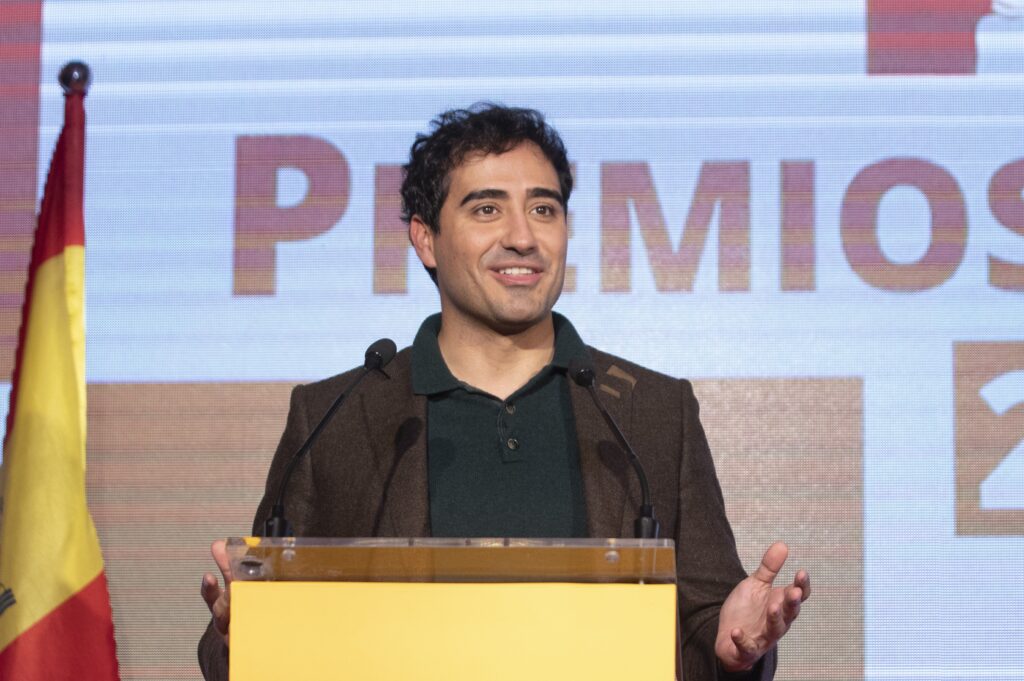The results of the recent European elections in Spain did not differ much from the general tone across the continent: the traditional right as the leading force and the emergence of a new far-right party.
Over the past few decades, an image was cultivated (mostly from the academic and the journalistic sphere), of Spain as an exceptional country at the European level due to the non-presence of the far-right in institutions. The causes of this exceptionality were theoretically related to three factors: the existing cleavage structure (with a strong territorial component); the electoral system; and the ability of the Partido Popular (People’s Party, PP) to encompass the entire spectrum of the right, from the most moderate to the most extreme. This Spanish exception abruptly broke in the Andalusian elections of December 2018, when the far-right Vox emerged with 12 seats. From then on, everything accelerated; the normalisation process that had taken decades for other European far-right parties (particularly the French National Front) was covered by Vox in just a few months. The Popular Party had no problems agreeing with them on the investiture of the new Andalusian president, Juanma Moreno. The debate on whether to share the government with them didn’t last long either, and by 2022 we witnessed the birth of the first regional coalition government between the right and the far-right in Castilla y León.

Source: Verian for the European Parliament
(https://results.elections.europa.eu/en/national-results/spain/2024-2029/)
In the European elections of June 9, the Spanish exception was definitively buried. Although Vox regressed in votes compared to the last general elections (from 12.4% to 9.6%), it clearly consolidated itself in the third position. Moreover, the election night brought another novelty, the entry into the European Parliament of Se Acabó La Fiesta (SALF), the candidacy of the controversial far-right influencer Alvise Pérez. Thus, Spain followed the path opened by other European countries of having more than one far-right force in the institutions, as was already the case in France (National Rally and Reconquest), in Italy (Brothers of Italy and the League), or in the Netherlands (Party for Freedom and Forum for Democracy).
Additionally, Se Acabó La Fiesta has some characteristics that differentiate it from Vox and bring it closer to the latest dynamics of the international far-right. On the one hand, a strongly conspiratorial component, fueled by the rise of these ideas during the COVID-19 pandemic, and also by the success of movements like the American Q-Anon. On the other hand, the discourse of its leader, Alvise Pérez, bears many similarities to that of Salvadoran President Nayib Bukele, displaying an unashamed authoritarianism that leads him to assert, for example, that he will build a prison to imprison the current prime minister, Pedro Sánchez.
The Decline of the Social Democratic Exception
More recently, there were talks of another exception in the Spanish case, the persistence of a strong social democratic party in a context of electoral collapse of social democracy in the main countries of the European Union. Pedro Sánchez and the Spanish Socialist Workers’ Party (PSOE) had built an image in recent years in Europe of Spain as a bastion of progressivism against the conservative shift on the continent. The results of the recent European elections do not completely destroy this image but leave it seriously damaged. The PSOE did not achieve electoral victory but was surpassed by more than half a million votes by the PP (34% of the vote versus 30%). Moreover, the sum of the PP, Vox, and Se Acabó La Fiesta was very close to 50% of the vote.
The defeat of the socialists, however, must be put into context. The Popular Party expected to achieve a much wider margin of victory that would allow it to significantly weaken the current progressive coalition government and demand early elections. Additionally, the PSOE will be the second force in the next European Parliament within the Socialist and Democrats (S&D) group, only behind the Italian Democratic Party. This, along with the appointment of Sánchez as the leader of the European socialists in negotiations for EU institution positions (together with German Chancellor Olaf Scholz), ensures that this second Spanish exception is not completely over.
The Fragile Left Coalition
Finally, we must talk about the last Spanish exception in the European context: the presence of the left in a state coalition government. In the Left-wing Observatory of the EP elections by Transform! we had noted that, in the Spanish left-wing spectrum, these elections would be read as a plebiscite between Sumar and Podemos. The result of this plebiscite was clearly more favorable to Podemos, despite being behind Sumar. Podemos obtained barely 3.3% of the vote but achieved its main goal of gaining representation in the European Parliament (2 seats). This representation will allow it access to much-needed economic resources for a party that has seen its institutional presence significantly reduced in recent years.
In the case of Sumar, the disastrous result in the European elections, falling below 5% (4.7%), and being surpassed by the coalition of pro-independence leftists, Ahora Repúblicas (4.9%), has generated a crisis. Additionally, one of the main formations that made up Sumar, Izquierda Unida, was left out of the European Parliament. Its candidate, MEP Manu Pineda, was fourth on the list, but Sumar only won three seats*. This has generated a new wave of criticism of Sumar from Izquierda Unida, whose relegation to the fourth position on the list was already heavily criticised by its militancy before the elections. All these tensions ended up causing the day after the elections, last Monday, June 10, Vice President and Minister of Labour of the Spanish Government Yolanda Díaz to announce her resignation as the leader of Sumar.
The parties integrated into Sumar have positioned themselves in recent days, asking for the coalition to be consolidated as a union of parties, where everyone has the same weight, and not as a personalistic movement as Díaz wanted. Some voices, especially in Izquierda Unida, have also advocated for the overcoming of Sumar in favor of a broader collective entity that would eventually allow rebuilding the broken bridges with Podemos in the future. However, tensions between Podemos and Sumar remain numerous, and it seems difficult that a rapprochement could occur in the short term. The situation of the Spanish left is very fragile, and if early general elections were called, it could end up reduced to pre-2014 representation levels.
* Who from Spain will join the Left in the European Parliament: 1 from Sumar, 1 from Ahora Repúblicas, 2 from Podemos (Sumar: 3 elected MEPs — 2 will join the Greens and 1 the Left in the European Parliament; Ahora Repúblicas: identically, 3 elected MEPs, 2 joining the Greens, 1 joining the Left; Podemos: 2 MEPs, who will both belong to the group of the Left in the European Parliament).
Cover photo: Alvise Pérez, leader of the newly established far-right party Se Acabó La Fiesta (SALF). Source: HazteOir.org via WikiCommons (CC BY-SA 2.5)



